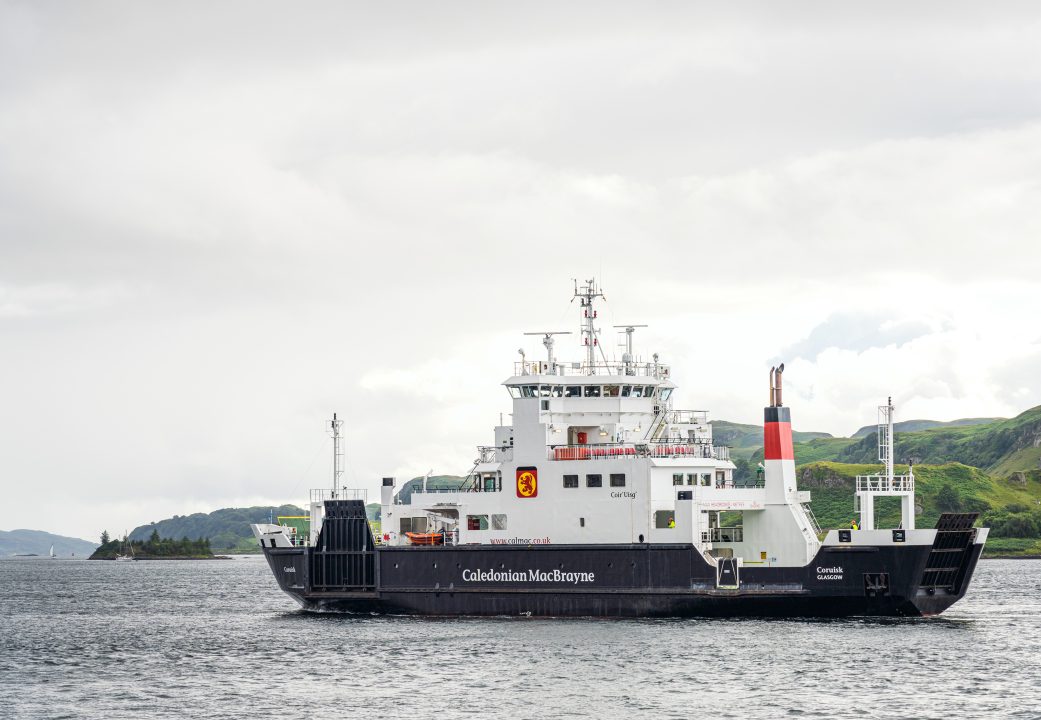The “pitiful state” of Scotland’s ferry fleet has seen the bill for repairs to CalMac vessels add up to more than £83m over five years, Scottish Labour has said.
Amid ongoing delays to the construction of two new vessels for ferry operators Caledonian MacBrayne, Labour islands spokeswoman, Rhoda Grant, hit out at the “soaring” cost of maintaining its existing vessels.
Repair costs rose from more than £14m in the first year of the contract, which dates back to 2016, to almost £18.4m in the fourth year, before falling back slightly the year after that to just under £17.3m.
Over five years, the costs amounted to £83.661m, figures released under Freedom of Information revealed.
This included a 70% rise in costs for the 35-year-old MV Loch Striven over the five-year period, as well as a 61% rise in the costs for the 37-year-old MV Isle of Arran and a 73% increase in costs for the 28-year-old MV Caledonian Isles.
However, Labour noted that costs for the six-year-old MV Catriona have tripled over the period, increasing from £73m in the first year of the contract to £217m by the fifth year.
With the construction of the new Glen Sannox and the as yet unnamed Hull 802 both delayed and overbudget, Labour accused the Scottish Government of having “abandoned island communities and left Scotland’s lifeline ferry fleet to rust”.
The two new ships, being built at the Ferguson Marine yard in Port Glasgow, were originally due to enter service during 2018 – but the Glen Sannox is now not expected to be ready until some time between July and September 2022, with the second not due for completion until April to July 2023.
Grant hit out at the Scottish Government, saying: “Years of neglect have left Scotland’s ferry fleet in a pitiful state, and their catastrophic mismanagement of the Ferguson’s Marine contracts made a bad situation worse.”
She added it was “little wonder costs are soaring when we are relying on vessels a decade past their lifespan”.
Grant said: “The SNP’s shambolic approach to shipbuilding has failed islanders, workers and taxpayers alike.
“We desperately need some strategic thinking in the new ferry plan – something that has been sorely lacking so far.”
A Transport Scotland spokesman accepted that the ferry fleet was “aging”, adding: “That’s why we are delivering new tonnage to support our communities by working with CMAL (Caledonian Maritime Assets Ltd), CalMac, MSPs, community representatives and others to develop investment programmes – at least £580m over the next five years – for major vessels and small vessels.”
The spokesman continued: “CalMac, as the operator of the Clyde and Hebrides ferry services, are required to keep the vessels seaworthy and in a good and efficient state of repair.
“This includes maintaining the classification of the vessels with the relevant classification society as well as complying with all other regulations and requirements.
“Ferries throughout Europe generally have a 30-year service life provided they are regularly maintained and serviced throughout this period.
“Vessels that carry on after the 30 years period will have increased maintenance costs as equipment will require replacement as opposed to serviced.”
Follow STV News on WhatsApp
Scan the QR code on your mobile device for all the latest news from around the country


 iStock
iStock

























